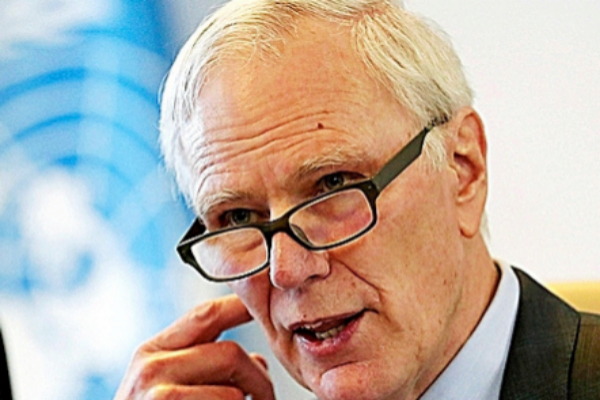«Sometimes I go to bed without dinner and my stomach does glú, glú, glú . I drink some water and so I throw something in the gut. And I think: 'Will I eat tomorrow?' Look, I know what hunger is. But I also know that sleeping is passed ». Benita told EL MUNDO a few years ago next to the stacked tires of his van / house in Las Barranquillas , a marginal town in the east of Madrid, a 20-minute drive from the Congress of Deputies . Today, five years later, the shacks and the Hemicycle are still there as if almost nothing has changed.
Some of that has come to denounce this Friday the UN Rapporteur for Extreme Poverty and Human Rights after two weeks of visit to the most punished areas of Spain. «Although Spain is prospering economically, too many people continue to struggle. I have been amazed to see that strawberry pickers in Huelva live like animals (...) Many families have to choose between having heating or food (...) There are places with worse conditions than a refugee camp, without running water and electricity ».
His name is Philip Alston and he has signed a drastic summary of what he has seen for 10 days in six autonomous communities. «I have been visiting Spain many times and I have witnessed prosperity, but this time I have seen the other side, a Spain that is home to a large percentage of people living on the edge of their possibilities. I have heard stories of great misery. Spain is failing the most vulnerable and does not take social rights seriously.
The Rapporteur has had a special impact on some focuses: migrant workers in the south, Roma communities, people with disabilities and evicted families.
He puts the adjectives: "In some places, gypsies are treated as discarded." "Unaccompanied migrant children are a desperate group that is still subjected to barbarism by a genital test to assess their age." "Many domestic workers are subjected to exploitation." "Spaniards who do not have access to contributory pensions are having a hard time." «There is a housing crisis of disturbing proportions» ...
The social and state organizations put the data: Spain has 1,013,200 households in which all its active members are unemployed ( Active Population Survey ). The minimum Regional Insertion Income leaves out 92% of those who are below the poverty line, since they do not take into account new phenomena such as that of the 'poor workers' ( Association of Directors and Managers of Social Services ). Four out of 10 people with disabilities are out of health services, 16% are in a situation of severe exclusion and 17% cannot buy medicines ( Spanish Committee of Representatives of Persons with Disabilities ). 26.1% of the population in Spain is at risk of poverty or social exclusion, 36% cannot face unforeseen expenses and about 1.5 million people cannot afford a meal of meat, chicken or fish at least every two days ( National Institute of Statistics ).
The lacerating review of the United Nations Rapporteur has included criticism of the "high percentage of unemployment", the "high levels of gender violence" and the "nineteenth-century bureaucracy", which implies "infinite lists of documents without concern for deadlines and consequences ».
Philip Alston, who says he trusts in the "projects against poverty" of the PSOE-Podemos Government, blames this situation on the policy undertaken in Spain during the last decade. Even so, he praises two aspects of the Spanish state machinery: the "jewel" of the health system and the "good level" of pensions.
The UN Rapporteur concludes with several recommendations to the Government: apply a national minimum income, make a redistributive tax reform, boost social housing and limit the price of rentals in large cities.
According to the criteria of The Trust Project
Know more
